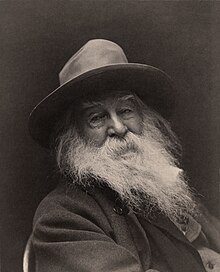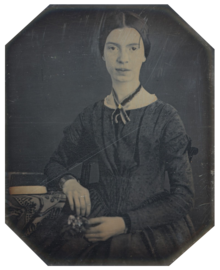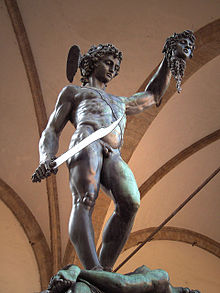 1.Marguerite Donnadieu, known as Marguerite Duras ( 4 April 1914 – 3 March 1996), was a French novelist, playwright, scriptwriter, essayist and experimental filmmaker. She is best known for writing the 1959 film Hiroshima mon amour, which earned her a nomination for Best Original Screenplay at the Academy Awards.
1.Marguerite Donnadieu, known as Marguerite Duras ( 4 April 1914 – 3 March 1996), was a French novelist, playwright, scriptwriter, essayist and experimental filmmaker. She is best known for writing the 1959 film Hiroshima mon amour, which earned her a nomination for Best Original Screenplay at the Academy Awards.Despite her success as a writer, Duras's adult life was also marked by personal challenges, including a recurring struggle with alcoholism. Duras died of throat cancer in Paris, aged 81. Her funeral, held in a packed Saint-Germain-des-Pres, was highlighted with several musical recordings including a piano version of India Song.
2.Hiroshima mon amour is a 1959 drama film directed by French film director Alain Resnais, with a screenplay by Marguerite Duras. It is the documentation of an intensely personal conversation between a French-Japanese couple about memory and forgetfulness. It was a major catalyst for the Left Bank Cinema, making highly innovative use of miniature flashbacks to create a uniquely nonlinear storyline.
3.Samuel Taylor Coleridge (21 October 1772 – 25 July 1834) was an English poet, literary critic and philosopher who, with his friend William Wordsworth, was a founder of the Romantic Movement in England and a member of the Lake Poets. He wrote the poems Kubla Khan, as well as the major prose work Biographia Literaria. His critical work, especially on Shakespeare, was highly influential, and he helped introduce German idealist philosophy to English-speaking culture. Coleridge coined many familiar words and phrases, including suspension of disbelief. He was a major influence on Emerson and American transcendentalism.
Throughout his adult life Coleridge had crippling bouts of anxiety and depression; it has been speculated that he had bipolar disorder, which had not been defined during his lifetime. He was physically unhealthy, which may have stemmed from a bout of rheumatic fever and other childhood illnesses. He was treated for these conditions with laudanum, which fostered a lifelong opium addiction.
Kubla Khan
http://www.poetryfoundation.org/poems-and-poets/poems/detail/43991
4.Emily Elizabeth Dickinson (December 10, 1830 – May 15, 1886) was an American poet. Dickinson was born in Amherst, Massachusetts. Although part of a prominent family with strong ties to its community, Dickinson lived much of her life highly introverted. After studying at the Amherst Academy for seven years in her youth, she briefly attended the Mount Holyoke Female Seminary before returning to her family's house in Amherst. Considered an eccentric by locals, she developed a noted penchant for white clothing and became known for her reluctance to greet guests or, later in life, to even leave her bedroom. Dickinson never married, and most friendships between her and others depended entirely upon correspondence.
The extensive use of dashes and unconventional capitalization in Dickinson's manuscripts, and the idiosyncratic vocabulary and imagery, combine to create a body of work that is "far more various in its styles and forms than is commonly supposed". Dickinson avoids pentameter, opting more generally for trimeter, tetrameter and, less often, dimeter. Sometimes her use of these meters is regular, but oftentimes it is irregular. The regular form that she most often employs is the ballad stanza, a traditional form that is divided into quatrains, using tetrameter for the first and third lines and trimeter for the second and fourth, while rhyming the second and fourth lines (ABCB). Though Dickinson often uses perfect rhymes for lines two and four, she also makes frequent use of slant rhyme. In some of her poems, she varies the meter from the traditional ballad stanza by using trimeter for lines one, two and four, while only using tetrameter for line three.
A Narrow Fellow in the Grass
http://www.online-literature.com/dickinson/824/
5.James Lafayette Dickey (February 2, 1923 – January 19, 1997) was an American poet and novelist. He was appointed the eighteenth Poet Laureate Consultant in Poetry to the Library of Congress in 1966. He also received the Order of the South award.He returned to poetry in 1960, and his first book, Into the Stone and Other Poems, was published in 1960; Drowning with Others was published in 1962, which led to a Guggenheim Fellowship (Norton Anthology, The Literature of the American South). Buckdancer's Choice (1965) earned him a National Book Award for Poetry.James Dickey died on January 19, 1997, six days after his last class at the University of South Carolina, where from 1968 he taught as poet-in-residence. Dickey spent his last years in and out of hospitals, afflicted first with jaundice and later fibrosis of the lungs.
6.History of Literary Periods-The main issues in literary history are period and genre. Underneath genre, we need to explore the great authors and their masterpiece.
a+. Classicism-- including epics, tragedy, and comedy
b-. Dark age (Medieval)-- including Courtly Love and 3M (morality play, mystery play,
and miracle play)
c+. Renaissance-- Main genre is drama.
d-. Neoclassicism
e+. Romanticism-- This is where the American literature really began.g-. Victorian Literature-- high seriousness
h+. Modernism
 7.Walter "Walt" Whitman ( May 31, 1819 – March 26, 1892) was an American poet, essayist and journalist. A humanist, he was a part of the transition between transcendentalism and realism, incorporating both views in his works. Whitman is among the most influential poets in the American canon, often called the father of free verse. His work was very controversial in its time, particularly his poetry collection Leaves of Grass, which was described as obscene for its overt sexuality.
7.Walter "Walt" Whitman ( May 31, 1819 – March 26, 1892) was an American poet, essayist and journalist. A humanist, he was a part of the transition between transcendentalism and realism, incorporating both views in his works. Whitman is among the most influential poets in the American canon, often called the father of free verse. His work was very controversial in its time, particularly his poetry collection Leaves of Grass, which was described as obscene for its overt sexuality.Born in Huntington on Long Island, Whitman worked as a journalist, a teacher, a government clerk, and—in addition to publishing his poetry—was a volunteer nurse during the American Civil War. Early in his career, he also produced a temperance novel, Franklin Evans (1842). Whitman's major work, Leaves of Grass, was first published in 1855 with his own money. The work was an attempt at reaching out to the common person with an American epic. He continued expanding and revising it until his death in 1892. After a stroke towards the end of his life, he moved to Camden, New Jersey, where his health further declined. When he died at age 72, his funeral became a public spectacle.
Whitman's sexuality is often discussed alongside his poetry. Though biographers continue to debate his sexuality, he is usually described as either homosexual or bisexual in his feelings and attractions. However, there is disagreement among biographers as to whether Whitman had actual sexual experiences with men.
8.The Tempest is a play by William Shakespeare, believed to have been written in 1610–11, and thought by many critics to be the last play that Shakespeare wrote alone. It is set on a remote island, where the sorcerer Prospero, rightful Duke of Milan, plots to restore his daughter Miranda to her rightful place using illusion and skilful manipulation. He conjures up a storm, the eponymous tempest, to lure his usurping brother Antonio and the complicit King Alonso of Naples to the island. There, his machinations bring about the revelation of Antonio's lowly nature, the redemption of the King, and the marriage of Miranda to Alonso's son, Ferdinand.
The story draws heavily on the tradition of the romance, and it was influenced by tragicomedy, the courtly masque and perhaps the commedia dell'arte. It differs from Shakespeare's other plays in its observation of a stricter, more organised neoclassical style. Critics see The Tempest as explicitly concerned with its own nature as a play, frequently drawing links between Prospero's "art" and theatrical illusion, and early critics saw Prospero as a representation of Shakespeare, and his renunciation of magic as signalling Shakespeare's farewell to the stage. The play portrays Prospero as a rational, and not an occultist, magician by providing a contrast to him in Sycorax: her magic is frequently described as destructive and terrible, where Prospero's is said to be wondrous and beautiful.
9.Edgar Allan Poe ( January 19, 1809 – October 7, 1849) was an American writer, editor, and literary critic. Poe is best known for his poetry and short stories, particularly his tales of mystery and the macabre. He is widely regarded as a central figure of Romanticism in the United States and American literature as a whole, and he was one of the country's earliest practitioners of the short story. Poe is generally considered the inventor of the detective fiction genre and is further credited with contributing to the emerging genre of science fiction.He was the first well-known American writer to try to earn a living through writing alone, resulting in a financially difficult life and career.

To Helen- This poem is written by his tomb
http://www.poetryfoundation.org/poems-and-poets/poems/detail/44888
 10.In Greek mythology, Danaë was the daughter, and only child of King Acrisius of Argos and his wife Queen Eurydice. She was the mother of the hero Perseus by Zeus. She was credited with founding the city of Ardea in Latium during the Bronze Age.
10.In Greek mythology, Danaë was the daughter, and only child of King Acrisius of Argos and his wife Queen Eurydice. She was the mother of the hero Perseus by Zeus. She was credited with founding the city of Ardea in Latium during the Bronze Age.Disappointed by his lack of male heirs, King Acrisius asked the oracle of Delphi if this would change. The oracle announced to him that he would never have a son, but his daughter would, and that he would be killed by his daughter's son. At the time, Danae was childless and, meaning to keep her so, King Acrisius shut her up in a bronze chamber to be constructed under the court of his palace (other versions say she was imprisoned in a tall brass tower with a single richly adorned chamber, but with no doors or windows, just a sky-light as the source of light and air). She was buried in this tomb, never to see the light again. However, Zeus, the king of the gods, desired her, and came to her in the form of golden rain which streamed in through the roof of the subterranean chamber and down into her womb. Soon after, their child Perseus was born.
Unwilling to provoke the wrath of the gods or the Furies by killing his offspring and grandchild, King Acrisius cast Danaë and Perseus into the sea in a wooden chest. The sea was calmed by Poseidon and, at the request of Zeus, the pair survived. They were washed ashore on the island of Seriphos, where they were taken in by Dictys – the brother of King Polydectes – who raised Perseus to manhood. The King was charmed by Danaë, but she had no interest in him. Consequently, he agreed not to marry her only if her son would bring him the head of the Gorgon Medusa. Using Athena's shield, Hermes's winged sandals and Hades' helmet of invisibility, Perseus was able to evade Medusa's gaze and decapitate her.
11.Perseus , the legendary founder of Mycenae and of the Perseid dynasty of Danaans, was, alongside Cadmus and Bellerophon, the greatest Greek hero and slayer of monsters before the days of Heracles. Perseus beheaded the Gorgon Medusa and saved Andromeda from the sea monster Cetus. Perseus was the son of the mortal Danaë and the god Zeus. He was also the great grandfather of Heracles, also a son of Zeus.
12.Semiotics is the study of meaning-making, the study of sign processes and meaningful communication.This includes the study of signs and sign processes , indication, designation, likeness, analogy, metaphor, symbolism, signification, and communication.
Semiotics is closely related to the field of linguistics, which, for its part, studies the structure and meaning of language more specifically. The semiotic tradition explores the study of signs and symbols as a significant part of communications. As different from linguistics, however, semiotics also studies non-linguistic sign systems. Semiotics may be divided into three branches:
- Semantics: relation between signs and the things to which they refer; their signified denotata, or meaning.
- Syntactics: relations among or between signs in formal structures.
- Pragmatics: relation between signs and sign-using agents or interpreters.
13. Alliteration is a stylistic literary device identified by the repeated sound of the first consonant in a series of multiple words, or the repetition of the same sounds in stressed syllables of a phrase. "Alliteration" from the Latin word “litera”, meaning “letters of the alphabet”, and the first known use of the word to refer to a literary device occurred around 1624. Alliteration narrowly refers to the repetition of a consonant in any syllables that, according to the poem's meter, are stressed, For example is "Peter Piper picked a peck of pickled peppers".
The painting
Nevermore by Poal Gaugin







沒有留言:
張貼留言